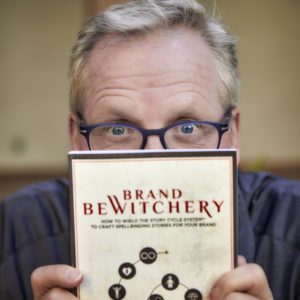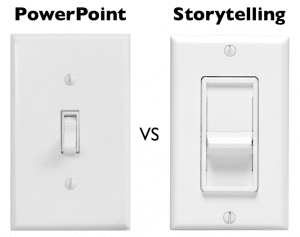Fundamentally, storytelling isn’t about telling a tale, spinning a yarn, or writing eloquent prose.
It’s about doing!
It’s about getting up off of our butts and taking action. While we’re living our stories, there are times when it seems mundane, tedious, tough, unfair, scary, boring, unfocused, frightful, you name it. It’s not until we capture our stories with hindsight, write them down, and share them with the world that we can truly appreciate our journey and its impact.
So while we live them, we have to make a concerted effort to make the characters, scenes, and action compelling. In the words of Don Miller, the host of the “Storyline Conference,” the past two days in Portland, OR,
“What makes a great story also makes a great life.”
Here are my cliff notes from Storyline.
Six ways story parallels life:
- If you haven’t experienced something hard, you don’t have what it takes to be a hero.
- “Setting” is huge. Where you do what you do matters a lot. Make it meaningful and memorable.
- In story, as in life, “conflict” gives value to ambition. It’s good. It’s essential. The beauty of the story is when it gets tough.
- If you’re avoiding conflict, your avoiding creating a great story.
- What is the single climactic scene you’re gunning for in your story?
- As soon as you decide you want something, you are entering into conflict in your life. You then must trigger an “Inciting incident” to launch your quest. Without an inciting incident, whether voluntary or serendipitous, you have no story worth telling.
Eight ways to develop YOUR character in YOUR story:
- We all have shared agency in what we do. We are empowered to write our own stories. We have to examine the possibility that we don’t actually want to take responsibility for our lives.
- When you are about to begin a heated conversation or difficult negotiation, turn your palms up before you begin and keep them that way throughout the conversation. It keeps you open, honest and humble.
- It’s so important to know what you’re bad at. Don’t dwell on it. Just get someone to handle that area so you can concentrate on deploying your strengths.
- The “What if” challenge is the freedom to have absurd ideas. Write down 20 or 30 “What if’s,” and one or two will stick with you and bother you. Act upon those and create an inciting incident.
- Have meaning in your suffering. Our suffering needs to have real dignity.
- Write, create, produce, rather than consume.
- When it gets really tough, just be awesome.
- Create great scenes.
This was Don Miller’s first “Storyline Conference,” and as far as I can tell, he’s only got one more planned. It’s in January on the 23rd and 24th. If you want to craft a better story, whether its for your life, cause, product, or church, I’d be at his doorstep when those conference doors swing wide open.













at 6:58 am
[…] I caught her attention several months back when I was chronicling my exposure to writer Donald Miller, his books starting with A Million Miles and a Thousand years, and his remarkable Storyline […]